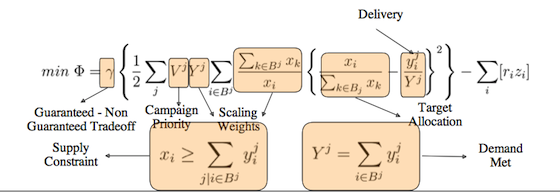My CDD and USPIRG asked the FTC in January 2009 to investigate mobile marketing and its threat to both privacy and consumer protection issues (Ringleader Digital, now the subject of lawsuits and stories in the WSJ and NYT, was included in the complaint, btw). Online mobile marketers, including Microsoft and Google, illustrate how regulators in the U.S. and abroad should require safeguards to protect the public from unfair and deceptive practices–including those that involve their privacy. In Ad Age, both Google and Microsoft loudly proclaim what their mobile marketing services can do for brands, ads and marketers. Here are some choice excerpts:
Microsoft: “Microsoft Advertising’s industry-leading mobile display and search advertising solutions engage more than 43 million on-the-go U.S. consumers each month—regardless of a user’s mobile phone or wireless carrier. Its innovative ad placements and ad formats include display, rich media, search, video and custom in-app ad units…
Advanced Targeting Options
- Profile targeting: age, gender, household income, location, time of day
- Behavioral targeting: more than 120 custom segments (e.g., “movie watchers” and “business travelers”)
- Device: make and model
- Wireless carriers: on-deck inventory
- Keyword targeting: exact or broad match…Complete mobile ad solutions for automotive, CPG, entertainment, financial services, retail, technology, telecommunications, travel and other sectors…
- More than 43 million, or 55 percent of active mobile web users in U.S.
- More than 80 million active mobile users globally in 32 countries.”
Google: “Today’s consumers are on the move. More than ever before, audiences are searching and browsing the web on their mobile devices. How do advertisers connect with the on-the-go consumer…As customers go mobile, advertisers need smart mobile advertising strategies. With Google, they can easily target and tailor messages according to location and automatically show their customers relevant local business information or phone numbers to enable them to take immediate action. Once a campaign is up and running, marketers can measure their results via detailed reports. Additionally, integrated mobile reporting in Google Analytics allows them to track and optimize conversion, e-commerce and engagement metrics on mobile devices. They can take advantage of Google’s mobile-specific ad formats. Click-to-call text ads, animated mobile banner ads, click-to-download ads and other display ad formats are examples of how Google is innovating for the small screen. Google closed its acquisition of AdMob, one of the world’s leading mobile advertising networks, in May. AdMob’s innovative rich media ad units—including full-screen expandable, animated banner and interactive video—create opportunities for advertisers to engage with a relevant audience on their mobile devices. Now the Google and AdMob teams are working to create new ways to deliver engaging and innovative advertising experiences that will help marketers drive their businesses forward…
CASE STUDY
CHALLENGE: Esurance, a direct-to-consumer personal car insurance company, wanted to ensure that customers could do business with it on their own terms and at their own convenience… To make the connection between mobile users and Esurance agents, Esurance used Google mobile ads with integrated click-to-call functionality. The CTC ads gave mobile users the option of clicking through to Esurance’s mobile-optimized landing page or initiating a phone call with a licensed insurance agent…Results…
- Boosted conversion rates: Click-to-call mobile ads drove a 30 percent to 35 percent higher response.”
PS: Attention Music Lovers. In the same Ad Age piece, the online music service Pandora exclaims that it can provide:“Through powerful hypertargeting, reach the right person, at the right time, without waste. Target based on age, day, gender, location, mobile platform, time and type of music…Pandora offers a broad array of formats and rich media functions to create an immersive mobile experience, including:
- Tap to video
- Drag and drop
- Tap to app
- Tap to call
- Tap to e-mail
- Tap to expand
- Tap to find a location
- Tap to iTunes
- Tap to mobile webpage
- Standard banners”
 That’s the formula Yahoo is using to please its largest advertisers, explains an article in
That’s the formula Yahoo is using to please its largest advertisers, explains an article in